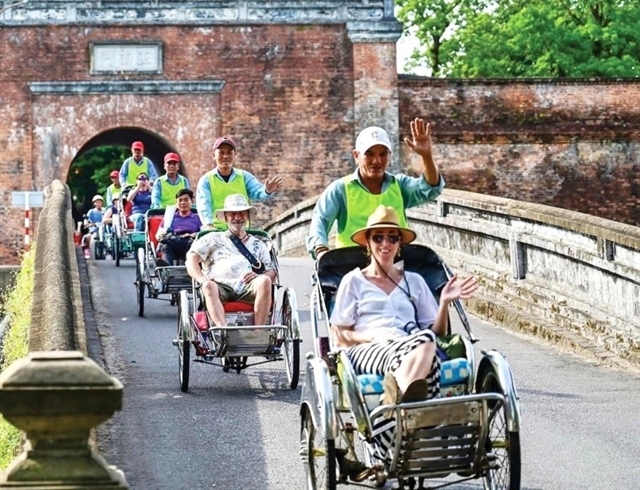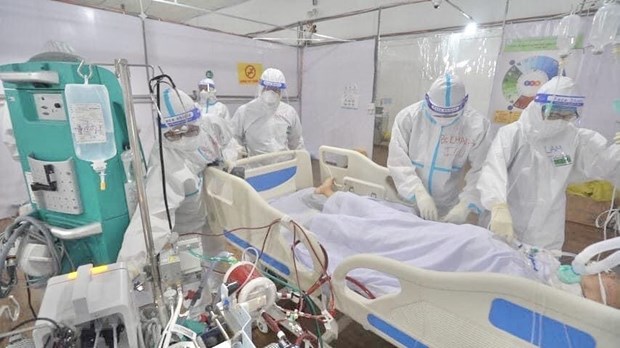 Society
Society


|
| Health workers take care of a COVID-19 patient at a field hospital in HCM City's Tân Bình District last year. VNA/VNS Photo |
HÀ NỘI — Việt Nam has about 500,000 medical staff working in the public sector, but 9,680 left the sector between January 2021 and June 2022.
A trend of medical workers moving from public to private medical facilities in Việt Nam has grown over the last two years as the country faced the unprecedented COVID-19 pandemic.
Reports from provinces, cities and non-business units under the Ministry of Health showed that out of the 9,680 health workers who quit in the last 18 months, 3,094 were doctors, 2,874 nurses, 551 medical technicians, 276 midwives, 593 pharmacists and 2,280 people of other positions.
There are 8,810 health workers under the management of Departments of Health in cities or provinces and 870 medical staff under the control of units under the Ministry of Health.
The provinces and cities with the highest rates of departure are HCM City (2,035), Hà Nội (1,032), Đồng Nai (496), Bình Dương (368), An Giang (297), Long An (266), Đà Nẵng (248), Cần Thơ (238), and Đồng Tháp (204).
According to the health ministry, high working pressures, low pay, poor working conditions, and pressure from society or family are blamed for the alarming exodus from the industry.
After the detection of law violations in bidding for the procurement of drugs, medical supplies and equipment, many medical units suffered higher pressure for failing to equip sufficient facilities to perform professional tasks. Moreover, the shortage of medical supplies affected the working conditions of health workers.
"A lack of modern equipment to deploy high-tech techniques, a lack of drugs, even a lack of consumables, common tools and equipment like protective equipment, have limited the promoting the qualifications and professional capacity of health officials and officials. As a result, health workers tend to move to private health facilities with better conditions and working environments," the Ministry of Health said.
The fourth reason is due to pressure from society, family and relatives of health workers. According to the ministry, health workers, like others, have concerns about ensuring family life, ensuring minimum living conditions with daily expenses for health and safety, electricity, water or education.
Prices of goods and services increased while the income level for public health workers remained low. As a result, with a heavy workload and modest incentive regime, public medical units lost their human resources to the private sector.
Facing the above difficulties and inadequacies of the health sector, last month, the Acting Minister of Health Đào Hồng Lan proposed the Government adopt policies to support tuition fees for medical students, especially in subjects that are facing a shortage.
The Government issued a Decree amending Decree No.56/2011/ND-CP dated July 4, 2011, of the Government, which increases the occupational incentive allowance for preventive and grassroots health workers to 100 per cent.
The Ministry of Health also suggested that the Government consider and issue a resolution on solutions and support policies for rural health workers, providing the highest level of occupational incentive allowance for health workers.
After recruitment, the titles of doctor, preventive medicine physician, and pharmacist are ranked at salary level 2 for all job titles.
The Ministry of Health also proposed medical officers and workers who died from COVID-19 while performing their duties be recognised as martyrs.
Among solutions to curb departures from the sector, the ministry also plans to continue investing in improving the working environment and working conditions for health staff and purchasing sufficient equipment, supplies, and drugs.
The ministry also directed the heads of non-business medical units to create a friendly, open, transparent and democratic working environment and build an office culture to create conditions for health workers to stay and feel proud of their work and workplace. VNS




